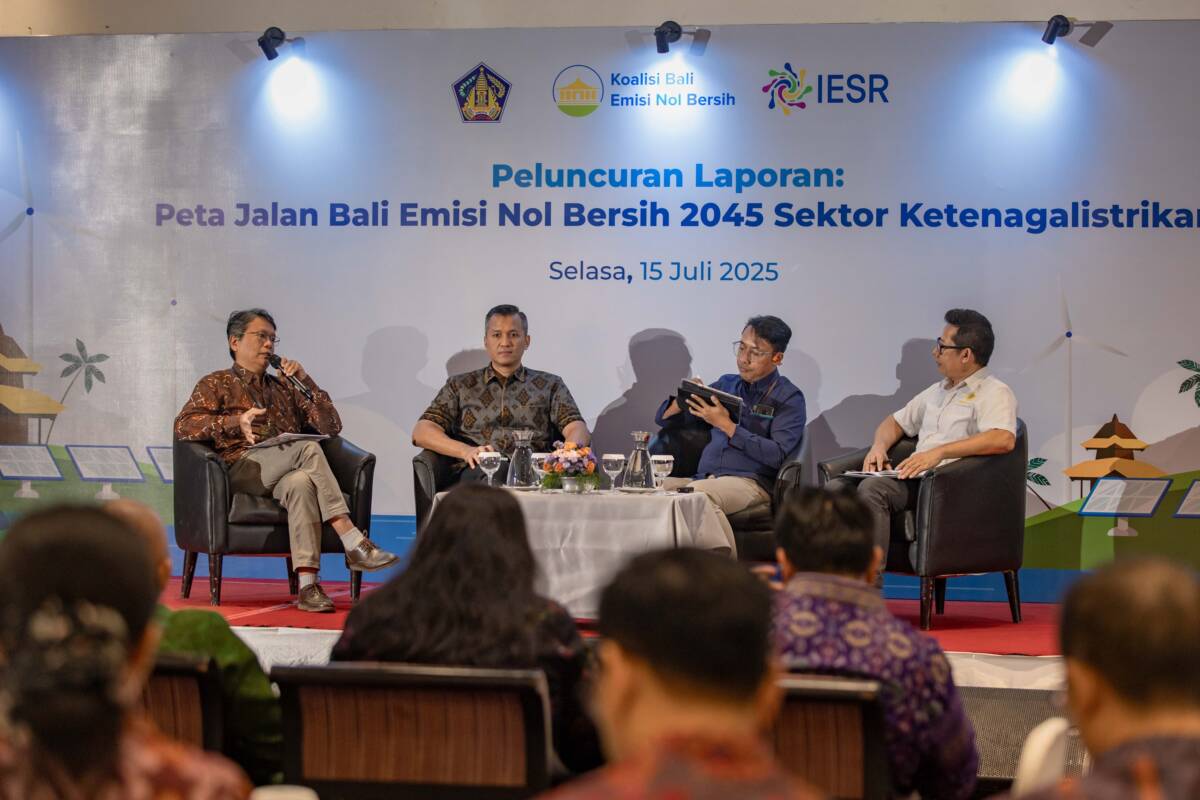Denpasar, July 15, 2025 – Bali, as a global tourist destination, boasts extraordinary natural beauty, from stunning beaches to breathtaking mountains. Its natural beauty, besides being a tourist attraction, also provides important benefits to the lives of local communities. Therefore, preserving Bali’s natural environment through low-emission initiatives, such as Bali Net Zero Emission (NZE) 2045, is crucial to ensuring a sustainable future for the island.
Prof. Ida Ayu Dwi Giriantari, Chair of the Center for Community-Based Renewable Energy (CORE) at Udayana University, stated that the Bali NZE 2045 Roadmap study can serve as a crucial reference in the development of Bali’s electricity system. This roadmap not only demonstrates Bali’s immense potential for renewable energy development, but also provides a clear direction and strategy for achieving a net-zero emissions province by 2045.
“With a strong commitment from all parties and collaboration between the government, community, and private sector, Bali can become an inspiring example for other regions in Indonesia in achieving sustainable energy goals,” he said at the launch of the Bali Roadmap for Net-Zero Emissions 2045 in the Electricity Sector on Tuesday (July 15, 2025) in Sanur, Bali.
Eko Wahyu Purnomo, Associate Expert Policy Analyst, Deputy for Energy Transition Acceleration at the Coordinating Ministry for Economic Affairs, stated that Bali’s steps could serve as a good example for other regions seeking to contribute to achieving the NZE target. However, several important points need to be considered to ensure this effort is effective and measurable. One of these is the projection of electricity demand growth, which must take into account energy conservation and efficiency scenarios.
“If energy conservation and efficiency are successfully implemented, electricity demand growth can be suppressed, thereby reducing reliance on fossil fuels. On the other hand, population growth and the increasing use of electric vehicles are expected to increase future electricity demand, which must be considered in energy planning,” he said.
Eric Rosi Priyo Nugroho, General Manager of the Bali Distribution Unit of PT Perusahaan Listrik Negara (Persero), stated that one of the major challenges in optimizing renewable energy is the need for an efficient energy storage system capable of balancing energy supply and demand. In this regard, planning for the need for battery-based power storage (Battery Energy Storage System, BESS), which reaches 21 GWh, is crucial.
“In addition to technical calculations related to energy generation and storage capacity, adjustments to PLN’s institutional capacity are also necessary. Managing and operating a smart microgrid requires advanced technical knowledge and skills, as well as good coordination between various types of energy generation and storage systems,” he said.
Anggi Firmansyah, Engineering Manager of PT Indonesia Power’s Bali Power Generation Business Unit (UBP), stated that Bali’s initiative in supporting the NZE target is commendable, given the importance of the concrete steps taken to encourage the transition to clean energy. Forums like this are crucial, demonstrating the commitment and synergy between various parties in supporting this policy.
Meanwhile, Agus Puji Prasetyono, a member of the National Energy Council (DEN) Stakeholders (AUPK), welcomed the initiative taken by the Bali Provincial Government and its partners in supporting the energy transition towards Net Zero Emissions (NZE) by 2045.
“Bali needs the construction of new power plants with a capacity of around 400-600 MW to meet growing energy demand. Therefore, careful planning and development of renewable energy-based power generation systems are crucial to achieving this. This will also support Bali’s efforts to achieve the NZE 2045 goal, which is part of Bali’s commitment to being a pioneer in the energy transition in Indonesia,” he explained.

